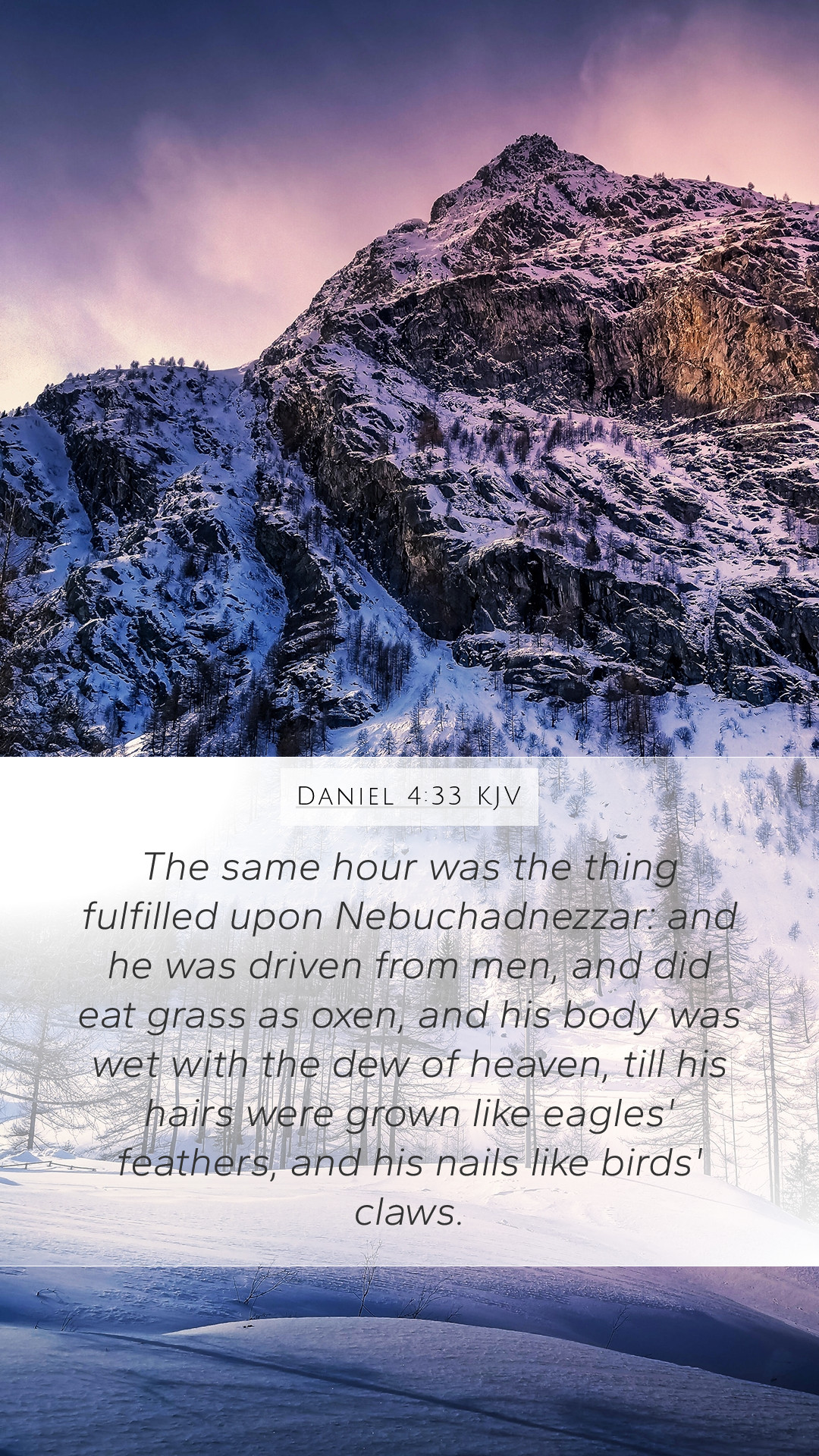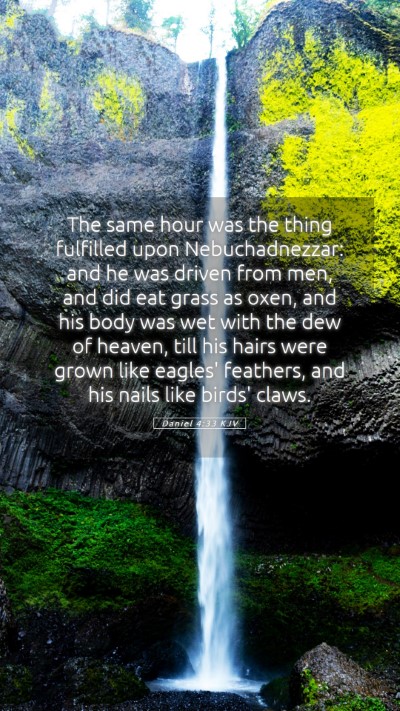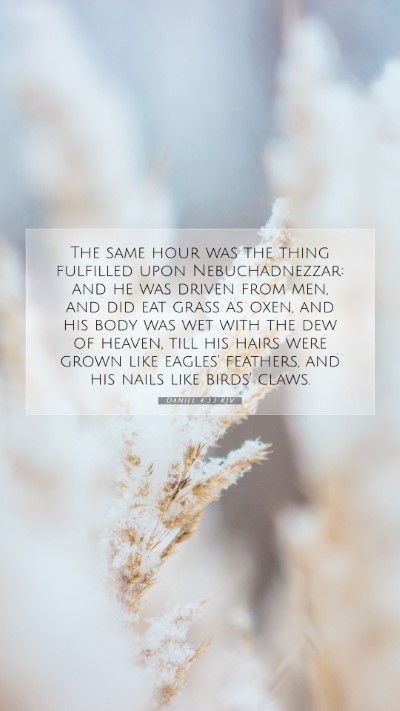Meaning and Interpretation of Daniel 4:33
Daniel 4:33: "The same hour was the thing fulfilled upon Nebuchadnezzar: and he was driven from men, and did eat grass as oxen, and his body was wet with the dew of heaven, till his hairs were grown like eagle's feathers, and his nails like birds' claws."
Overview of Daniel 4:33
In this verse, we witness the fulfillment of God's judgment upon King Nebuchadnezzar for his pride and arrogance. The once-great ruler is transformed, reflecting a profound humbling that serves as a direct consequence of his failure to acknowledge God’s sovereignty. This passage illustrates a significant moment where human pride is met with divine authority.
Bible Verse Meanings and Explanations
Matthew Henry's Commentary: Henry elucidates that this event was a divine punishment for Nebuchadnezzar's pride, demonstrating God's authority over kings and kingdoms. The physical transformation into a beastly state serves to symbolize the depths to which pride can lead a person.
Albert Barnes' Commentary: Barnes points out that Nebuchadnezzar’s experience is a powerful lesson about the consequences of pride. The imagery of the king eating grass emphasizes his fall from power to a state of utter humiliation. Moreover, it highlights how God's judgment can impact even the mightiest among us.
Adam Clarke's Commentary: Clarke notes the psychological implications of Nebuchadnezzar's condition. His mental derangement, described vividly in this verse, reflects a divine act whereby God removed His restraint on the king's mind, evidencing God's control over human sanity and dignity.
Key Insights from Commentaries
- Divine Sovereignty: The verse exemplifies God's ultimate control over earthly rulers.
- Consequences of Pride: Nebuchadnezzar's fate serves as a cautionary tale of the dangers of hubris.
- Transformation and Humiliation: The drastic change in Nebuchadnezzar's condition illustrates the transformative power of God's judgment.
- Psychological Elements: The text allows for a discussion on mental health implications within a biblical context.
- Symbolism: Nebuchadnezzar becoming beast-like fosters dialogue about the symbolism present in biblical literature.
Application and Reflection
The implications of Daniel 4:33 extend beyond its historical context. For modern readers, this verse presents an opportunity for self-reflection regarding pride and humility. It prompts the question: how do we acknowledge God’s authority in our lives, especially in moments of success?
Additionally, this verse reminds believers of the communal aspect of faith, wherein the narrative of Nebuchadnezzar can serve as a discussion point in bible study groups or online bible study contexts.
Cross References
- Proverbs 16:18: "Pride goes before destruction, and a haughty spirit before a fall."
- Isaiah 14:12-15: A passage discussing the fall of Lucifer, paralleling Nebuchadnezzar’s pride.
- James 4:6: "God opposes the proud but gives grace to the humble."
Conclusion
In summary, Daniel 4:33 offers a stark warning about pride and the importance of recognizing God’s sovereignty. Through the lens of commentaries, we gain a richer understanding of both the spiritual and practical implications of this transformative moment in Nebuchadnezzar’s life.
As we study this and other Bible verse meanings, may we cultivate a heart of humility and continually reflect on our dependence on divine grace.


